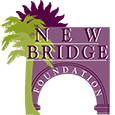We tend to think of the difficulty of recovery as happening early in the process. The first steps can be challenging both psychologically and physically. The early stages of rehab, including detox programs and the stages that immediately follow, are as demanding as they are critical. But the idea that recovery simply gets more comfortable as it goes along is not entirely accurate. This is evidenced at least in part, by the fact that so many individuals in recovery eventually relapse at least one time. This is why a relapse prevention plan is so important. But what is a relapse prevention plan?
What Is a Relapse Prevention Plan and Why Does It Matter?
First thing’s first. There is little that is more important to your recovery than exploring the questions surrounding “what is a relapse prevention plan?” Having a plan to protect yourself or for when things go wrong is some of the hardest work of recovery. Why? This is because to put the plan into place, you have to be honest with yourself. You have to understand your triggers and the behaviors that made rehab necessary in the first place. But once you have done this, you will be that much further down your road to recovery. And you will have given yourself a safety net that may one day save your life.
So what is a relapse prevention plan? It is usually a written document that you create with an addiction counselor during drug or alcohol rehab. In that document, you identify the behaviors that are most likely to lead to relapse on your part. Relapse doe not happen suddenly or all at once. As a result, it can be hard for the person in recovery to see the signs. Thus, this is why having a plan is so very critical.
What Is a Relapse Prevention Plan Supposed to Look Like?
There are three necessary steps to creating a plan. They are:
- Asking yourself important questions about your personal history of substance abuse. When have you been most prone to substance abuse? Has your substance abuse involved particular people, places, or situations? What is the mental space that is most likely to push you to relapse? If you have relapsed in the past, what was the impetus?
- Reflecting on the specific signs that you might be heading towards relapse. This should be a list of the emotional, psychological, and physical signs that you may be heading in that direction.
- Finally, making an action plan. In a moment of crisis, what will you do instead of using drugs or alcohol? The steps will involve specific people to whom you will reach out when a crisis hits. Will you go to the gym? To church? To a rehab group or 12-step meeting? This plan will be as specific as possible.
By exploring your triggers and putting your relapse prevention plan in place, you will dramatically decrease the likelihood of returning to drugs and alcohol.
Learn More at New Bridge Foundation®
When you are ready to learn more about the stages of recovery and especially relapse, you are not alone. The addiction specialists at New Bridge Foundation® have years of experience helping clients through every step of the recovery process. When you want to get started, or if you have been in recovery and have relapsed or fear relapse, contact us. Reach out today through our secure online contact form, or call us at 866.772.8491. Take your future into your own hands. Avoid relapse today.







